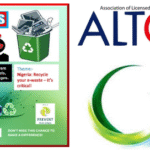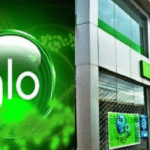By Elvis Eromosele
For years, USSD (Unstructured Supplementary Service Data) banking in Nigeria has been a lifeline for millions of Nigerians. It was simple, fast, and accessible even on the most basic mobile phones. From transferring money to paying bills, and checking balances to buying airtime, USSD provided seamless access to banking without the need for internet access.
But now, a terse, polite message from banks may have sounded the death knell of the service. In what feels like a final move in a long-standing tussle between telecom service providers and banks, the new directive from the Nigerian Communications Commission (NCC) mandates that going forward, USSD banking charges will be deducted directly from customers’ airtime, not their bank accounts.
The innocuous-looking message read in part “Dear Customer, from Tuesday, June 3, 2025, USSD banking charges will no longer be deducted from your bank account. Instead, the fees will be billed directly to your airtime in line with the NCC’s End-User Billing (EUB) directive. Each session will attract a charge of ₦6.98 per 120 seconds.”
Buried in this simple announcement is the latest twist in the long-drawn battle between telecom operators and banks over USSD service charges. This is a battle that has lasted for years, involving regulators and resulting in service disruptions, legal threats, and regulatory interventions. Now, it seems banks are preparing to exit the USSD battlefield altogether.
The NCC directive effectively removes the banks from the fee-collection equation and places the burden squarely on the end-user. For many, this change marks more than a billing switch; it signals the slow phasing out of a channel that revolutionized financial inclusion in Nigeria.
There are, undeniably, a few upsides to this new structure. First, customers now receive prompts before airtime deductions are made, ensuring a more transparent process. Second, telcos finally receive payment for services rendered, which could encourage better service delivery and network investments. Finally, the new model simplifies the revenue flow i.e. banks no longer need to collect and remit fees on behalf of telcos. In short, the move creates regulatory clarity and administrative efficiency.
However, the challenges are just as significant, if not more so. USSD banking emerged as a revolutionary tool for financial inclusion. It brought formal financial services to people without smartphones, data, and internet access. With just a basic phone and a GSM line, millions of Nigerians were able to check balances, transfer money, and buy airtime.
Now, each session comes at a direct cost, ₦6.98 per 120 seconds. For the average urban user, this may seem trivial. However, for rural dwellers, low-income earners, petty traders, and others at the economic margins, this is a heavy toll.
There’s also the psychological shift. A service that was once “free” or indirectly billed now requires upfront airtime, confirmation prompts, and network reliability. Add this to the banks’ not-so-subtle nudging of customers towards mobile apps and Internet banking, and the writing becomes clear: USSD banking is being slowly phased out.
You can’t blame the banks, it’s simple economics. USSD doesn’t allow for tailored digital engagement or targeted marketing. It lacks the analytical depth of app-based platforms. And now that they must rely on telcos to facilitate and collect the fees, it’s no longer strategically beneficial.
But here’s the catch: Nigeria is still a country with high levels of digital illiteracy, device poverty, and limited internet penetration. To phase out USSD without adequate replacement infrastructure or support systems would risk reversing the gains made in financial inclusion over the past decade.
Some would argue that there would be winners and losers. Yes, Telecom operators who now receive direct payment for USSD sessions; banks which shed the headache of fee collection and shift customers to digital platforms they control and tech-savvy customers who already prefer app-based banking solutions are all winners.
However, low-income users who depend on USSD as their only form of banking, rural communities where smartphones and data access remain luxury items and Nigeria’s financial inclusion agenda which may face a major setback would all be losers.
Going forward, we must now ask: how do we preserve financial inclusion while embracing digital transformation? A few ideas come to mind:
Tiered USSD Pricing: Offer essential services (such as balance checks or intra-bank transfers) at no cost or heavily subsidised rates, while charging for higher-value services.
Digital Literacy Campaigns: Educate users, especially in rural areas, on the use of mobile apps and internet banking.
Device Accessibility Initiatives: Encourage partnerships to provide affordable smartphones and basic data packages.
Public-Private Subsidy Models: The government, banks, and telcos can jointly fund access for the poorest Nigerians, similar to universal service obligations in other sectors.
This shift in USSD billing policy may seem like just another regulatory adjustment. But for millions of Nigerians, it could determine whether they remain financially included or pushed out of the system entirely.
As we pursue a cashless, digital Nigeria, we must ensure that no one is left behind, not the market woman in Aba, the farmer in Katsina, or the street vendor in Agege. Progress should not come at the cost of access.

Eromosele, a corporate communication professional and public affairs analyst, wrote via elviseroms@gmail.com








